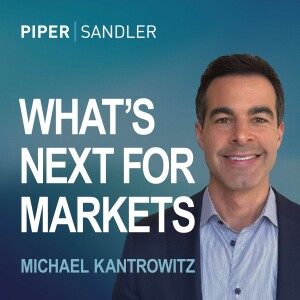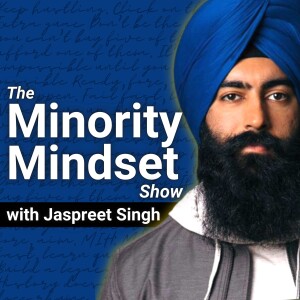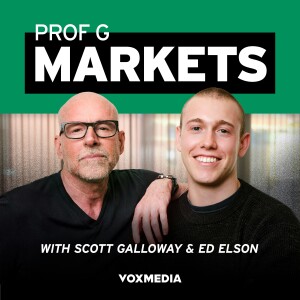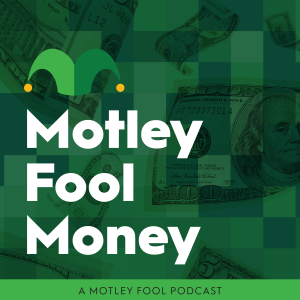

What's Next For Markets
https://feeds.buzzsprout.com/2437968.rssEpisode List

Deciphering The Fed's Next Move With Benson Durham
In this episode, We sit down with Benson Durham Head of Global Policy and Asset Allocation to discuss the dynamic landscape of financial markets amid key events and economic indicators. The conversation delves into the relationship between Chairman Powell and President Trump, market reactions to inflation and employment data, and the potential for rate cuts by the Federal Reserve. They analyze the recent soft payroll report and its implications, discuss the influence of tariffs, and explore how the Fed's decision-making process might evolve. The discussion also covers the long-term expectations for inflation, the anticipated impact of Federal Reserve policies, and the role of artificial intelligence and advanced econometric models in current financial analysis. Moreover, Benson shares personal anecdotes about his hobby of maintaining a vintage car, providing a human touch to an otherwise data-heavy discussion.

Goldilocks? Navigating Record Highs And Future Risk
In this episode, long-time colleagues Michael and Emily delve into the current state of the financial markets as they hit record highs. They discuss the impressive rebounds seen in meme stocks and high beta ETFs, along with the broader market's resilience despite underlying concerns. Key topics include the potential for continued bullish momentum, the impact of Federal Reserve policies on interest rates, and the influence of macroeconomic data on market trends. They also explore the unique market dynamics characterized by large-cap stock leadership and the relative underperformance of small-cap stocks. The conversation wraps up with insights into the future trajectory of financials, the housing market, and the speculative surge in Bitcoin.For full disclosure information visit: http://www.pipersandler.com/researchdisclosures.

From Complacency to Potential Catalysts: Insights From Danny Kirsch Head Of Options Strategy At Piper Sandler
In this episode, we discuss with Danny Kirsch the parallels between current market complacency and pre-Liberation Day conditions. Danny explores the implications of extreme call buying, SPACs resurgence, and market liquidity. The episode covers the market dynamics, examining the Fed's pressure to cut rates and its impact on long-term yields, the role of volatility control strategies, and the influence of upcoming events like the August 1st market event. We delve into detailed analyses of credit spreads, equity exposure, inflation expectations, and potential catalysts like the AI summit and policy changes. The conversation also highlights strategies for hedging market risks and the impact of speculative trades in cryptos and tech stocks.For full disclosure information visit: http://www.pipersandler.com/researchdisclosures.

Decoding Quality: What Investors Need to Know
In this episode, Emily Needell, Deputy Chief Investment Strategist at Piper Sandler, joins us to explore the concept of "quality" in stocks. We discuss how quality is defined, the key metrics used to identify high-quality companies, and common misconceptions surrounding the term. Indicators such as high profitability, strong interest coverage ratios, and robust free cash flow are highlighted as hallmarks of quality. We also challenge traditional assumptions, including the notion that low leverage and high dividend yields necessarily signal quality. Finally, the episode examines why quality stocks have consistently outperformed in recent years, particularly in a range-bound economic environment with elevated interest rates.

A Deep Dive With Economist Jake Oubina: Understanding The Data In A Data Dependent World
In this episode, we have in an in-depth discussion with economist Jake Oubina about the current economic landscape. We discuss the Federal Reserve's potential actions, inflation trends, and the housing market outlook. Jake shares his insights on how uncertainty over the past six months has affected consumer behavior, housing, and labor markets. He emphasizes the importance of lower interest rates, deregulation, and capital investment to stimulate economic growth. The discussion also touches upon the quality of economic data, including CPI and employment figures, and how alternative data sources can provide a more accurate picture. Jake concludes by addressing the complexities of inflation post-COVID and the impact of tariff policies on economic growth. This episode offers a comprehensive look at the factors shaping the current economy and provides actionable insights for market participants.
Create Your Podcast In Minutes
- Full-featured podcast site
- Unlimited storage and bandwidth
- Comprehensive podcast stats
- Distribute to Apple Podcasts, Spotify, and more
- Make money with your podcast












